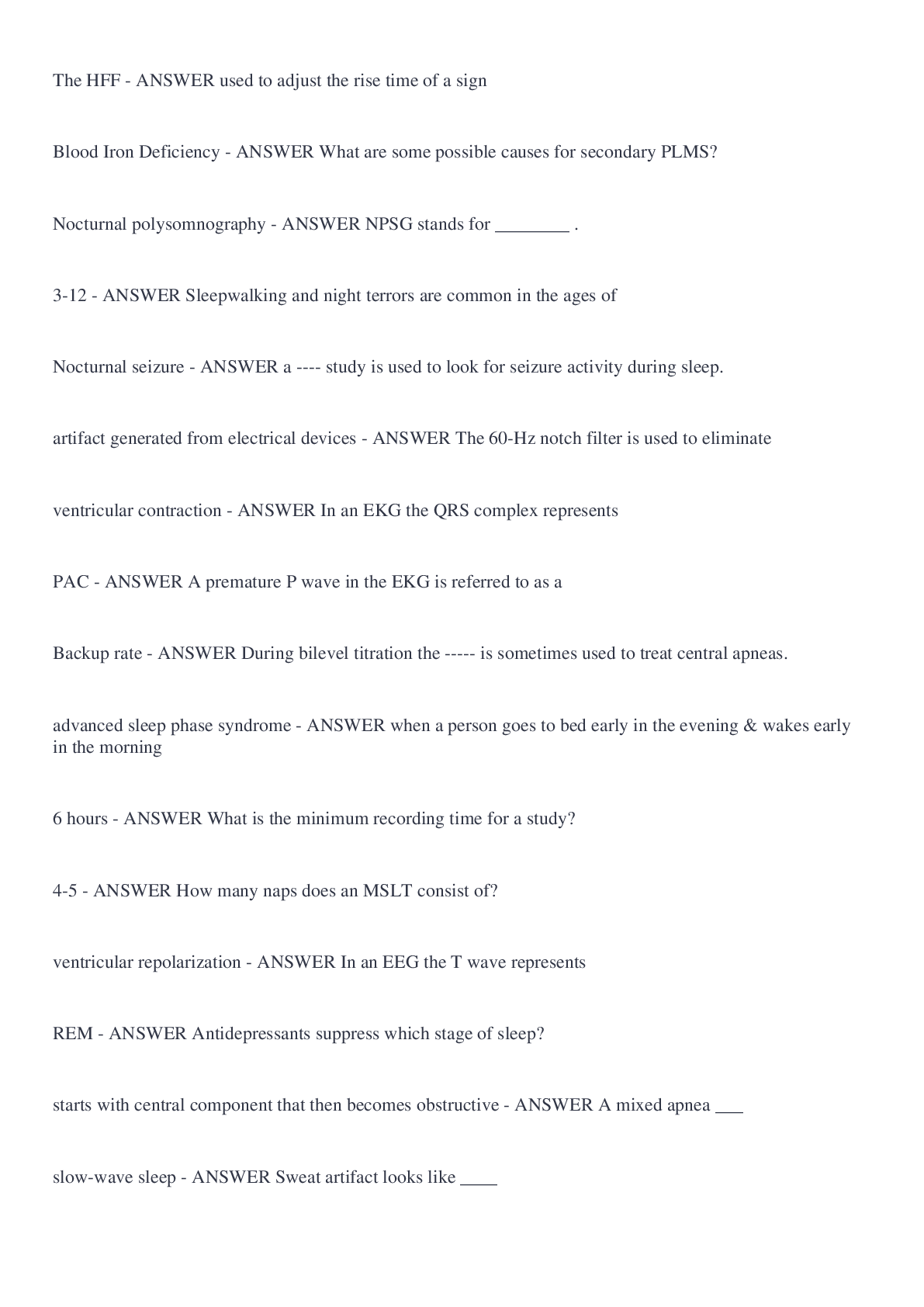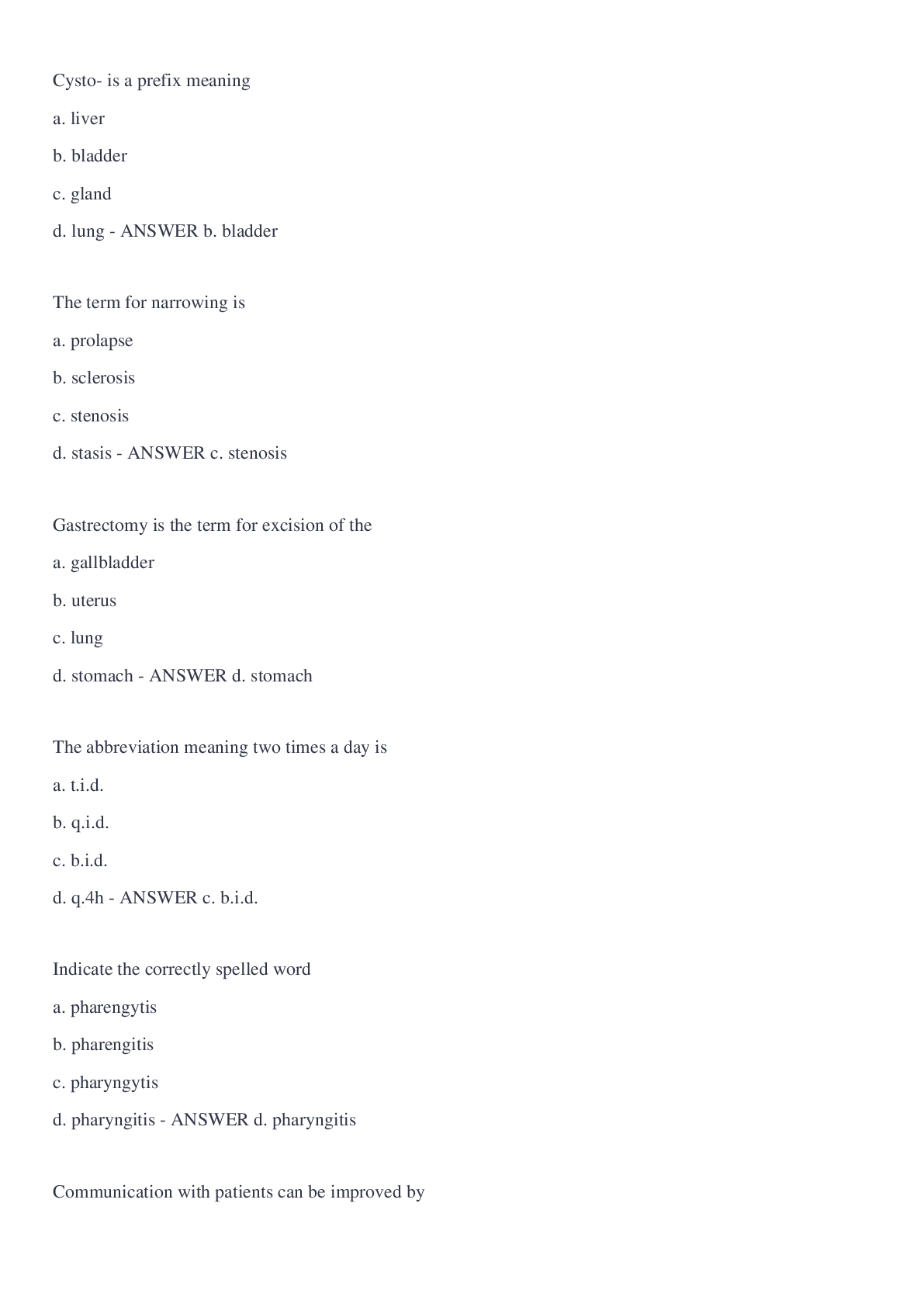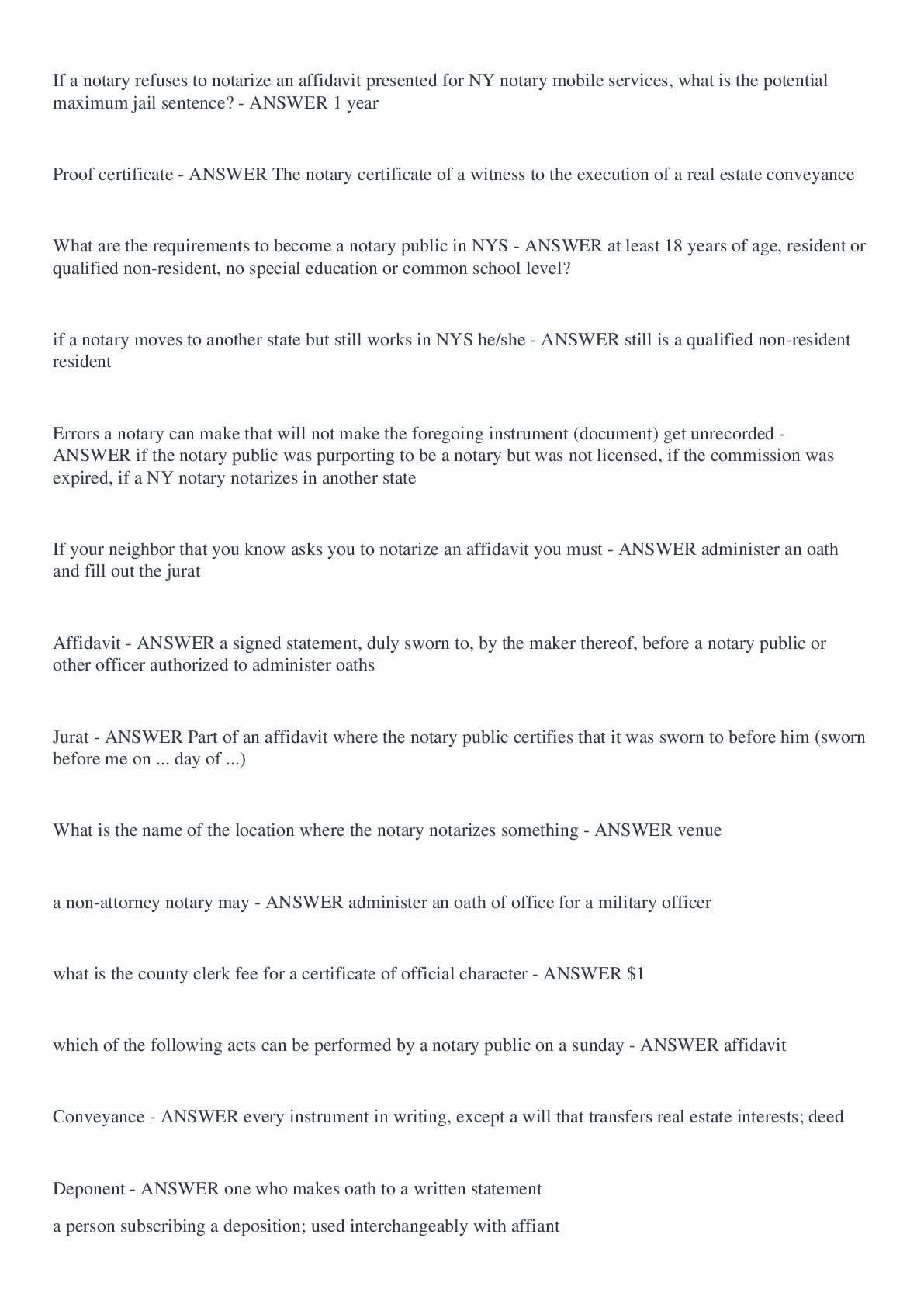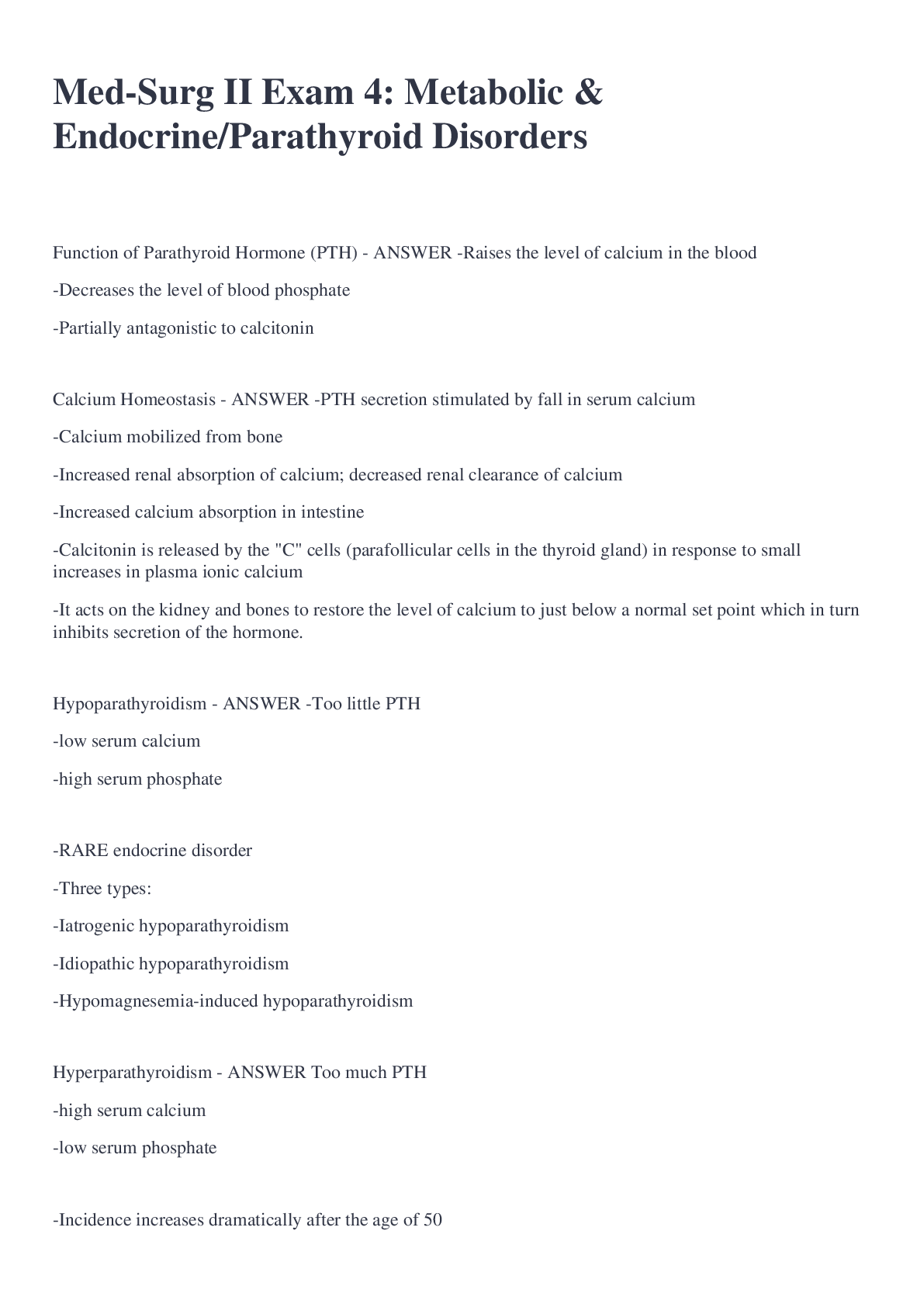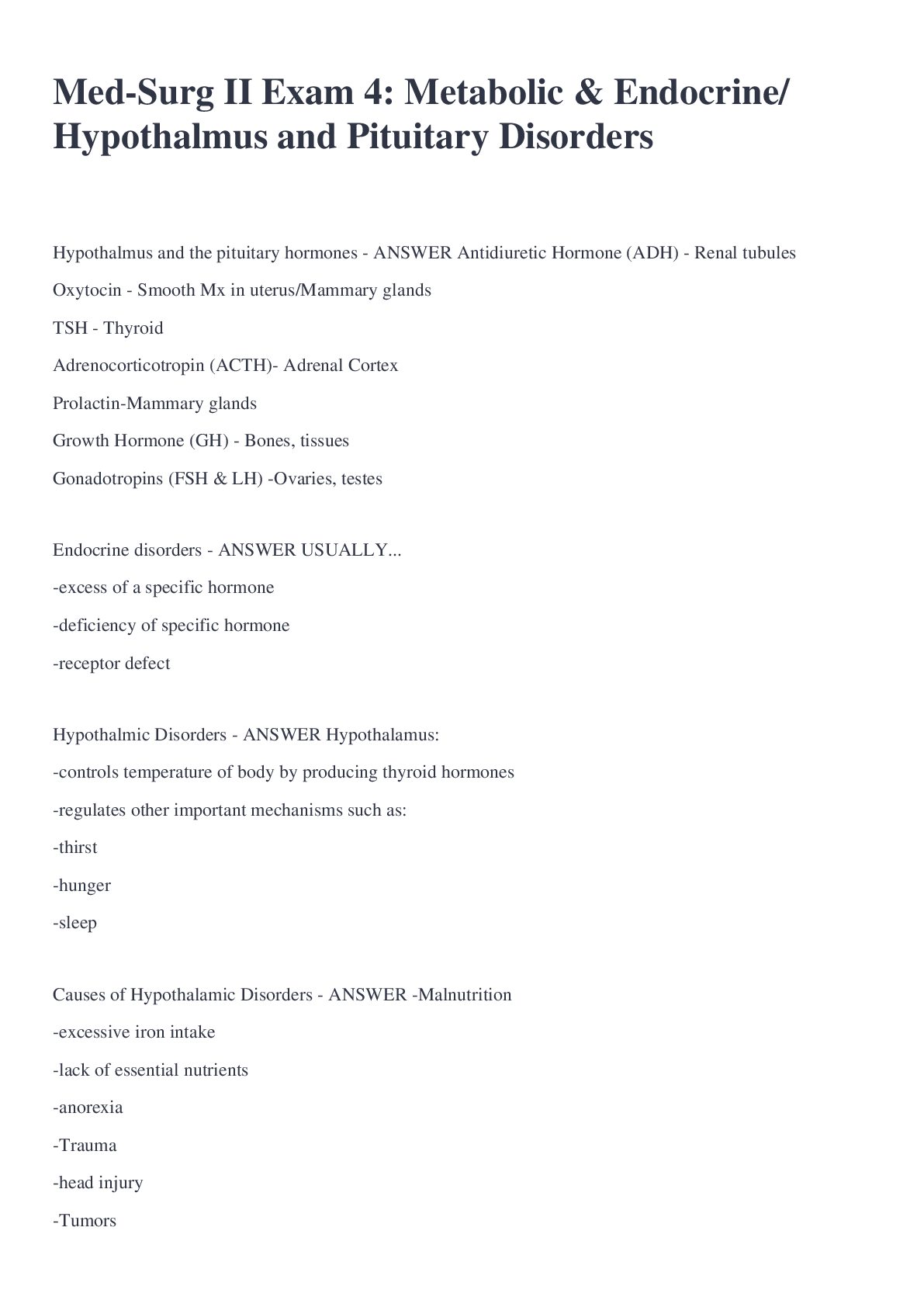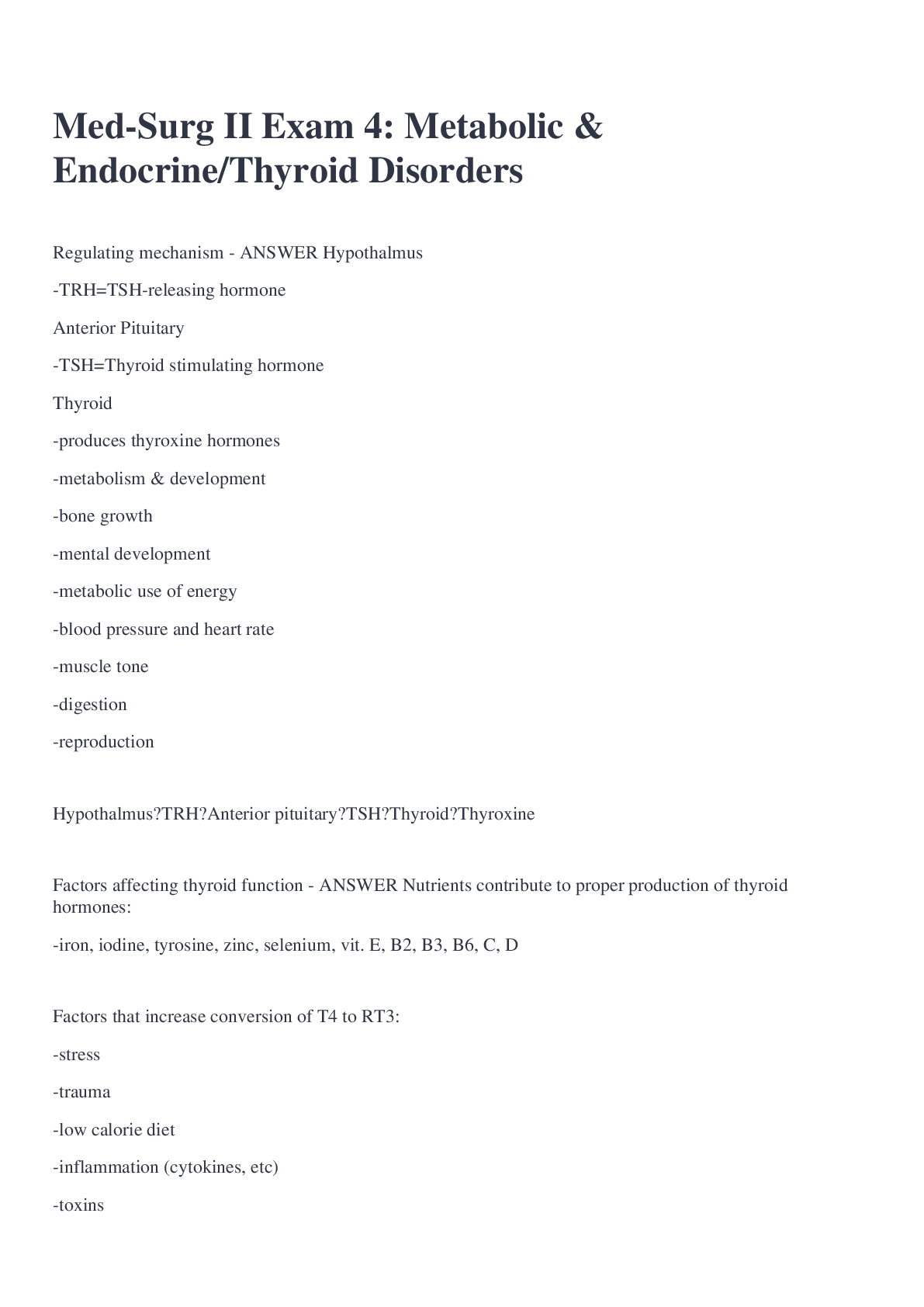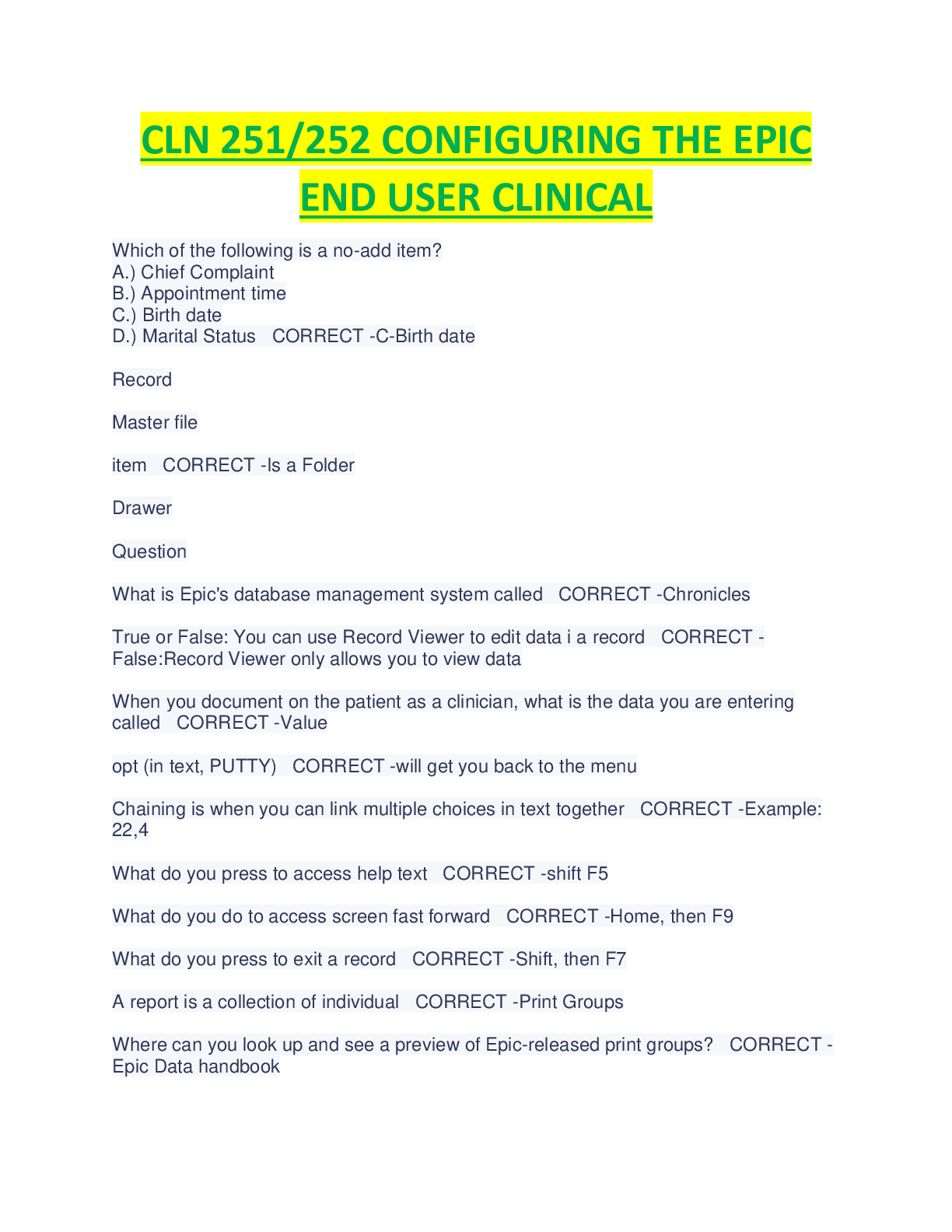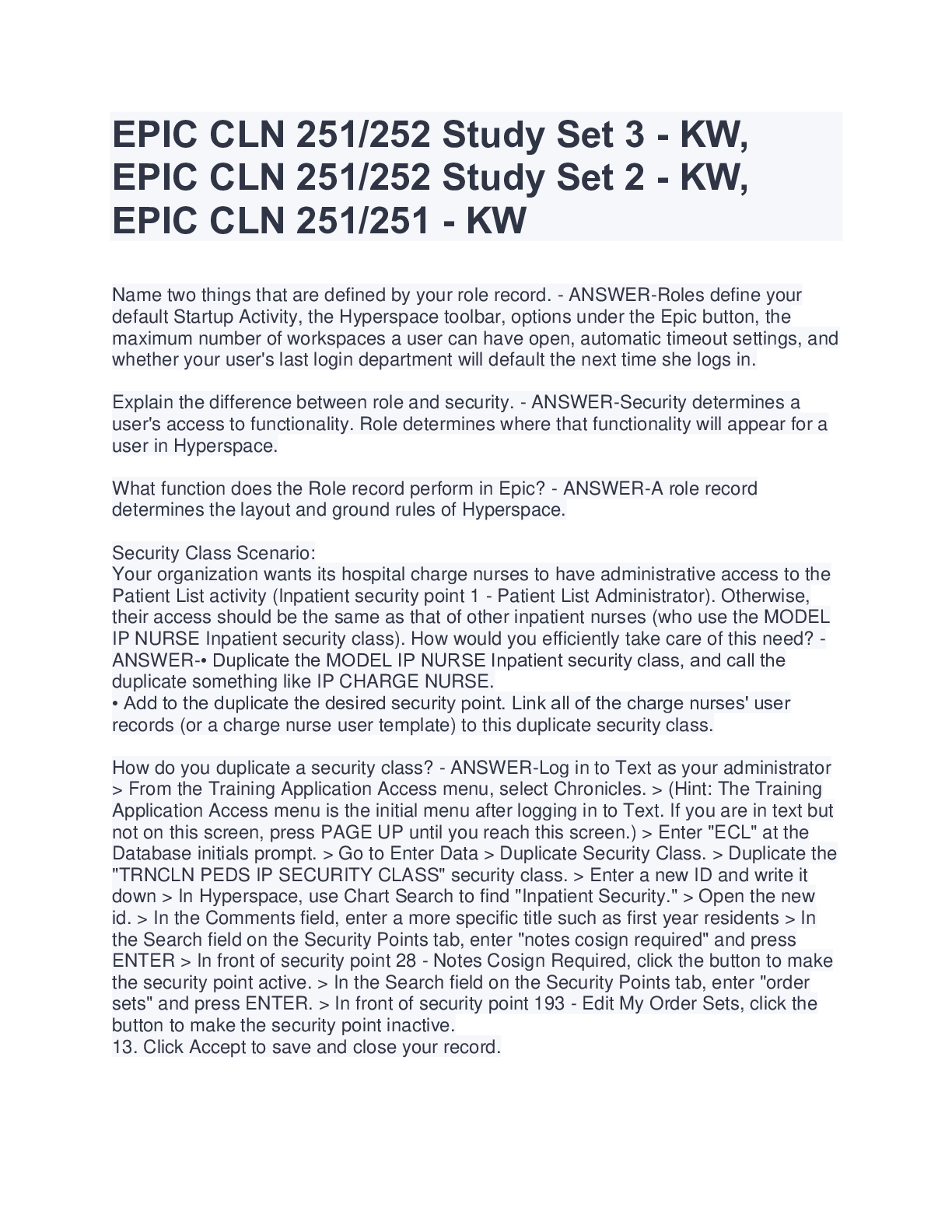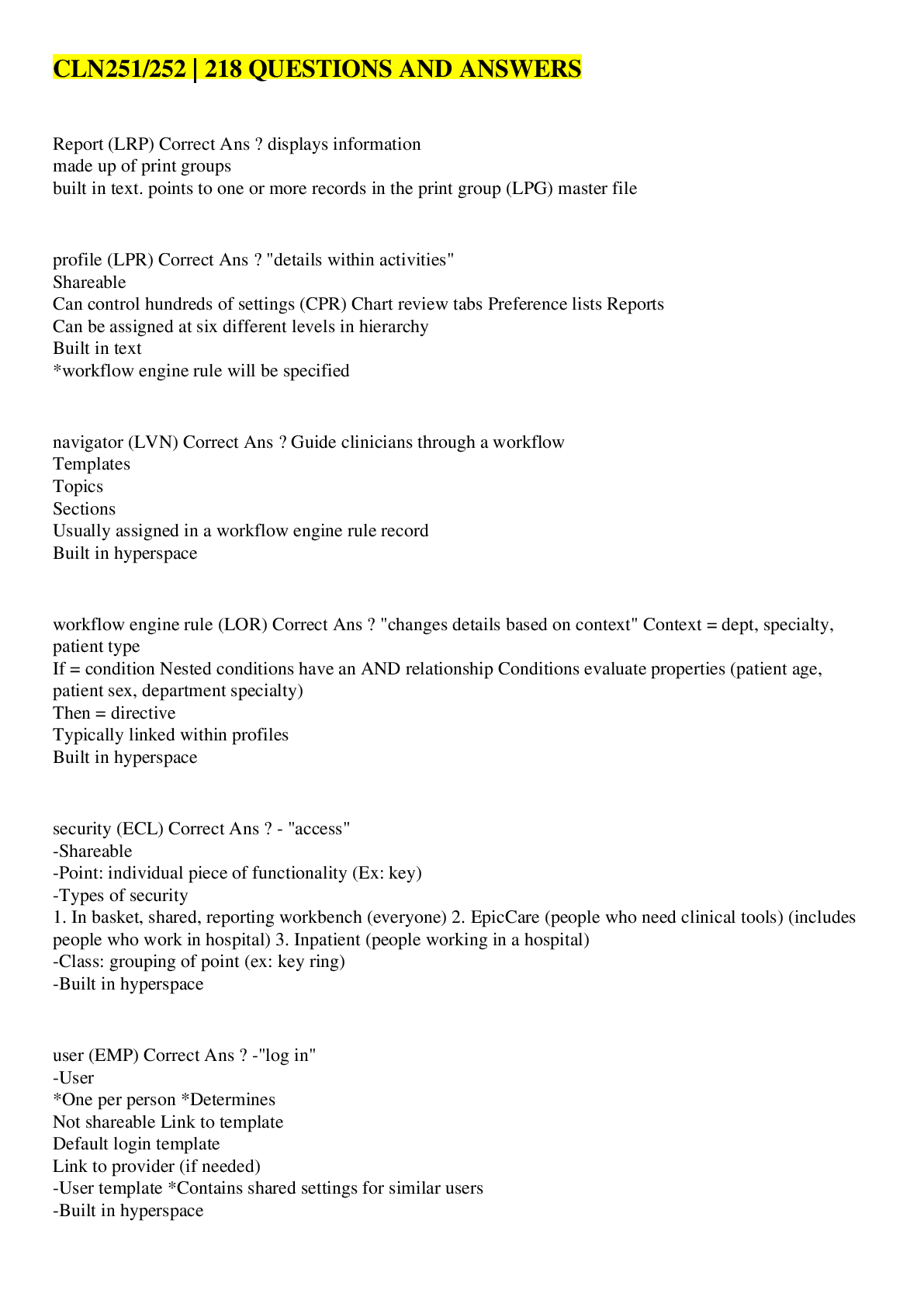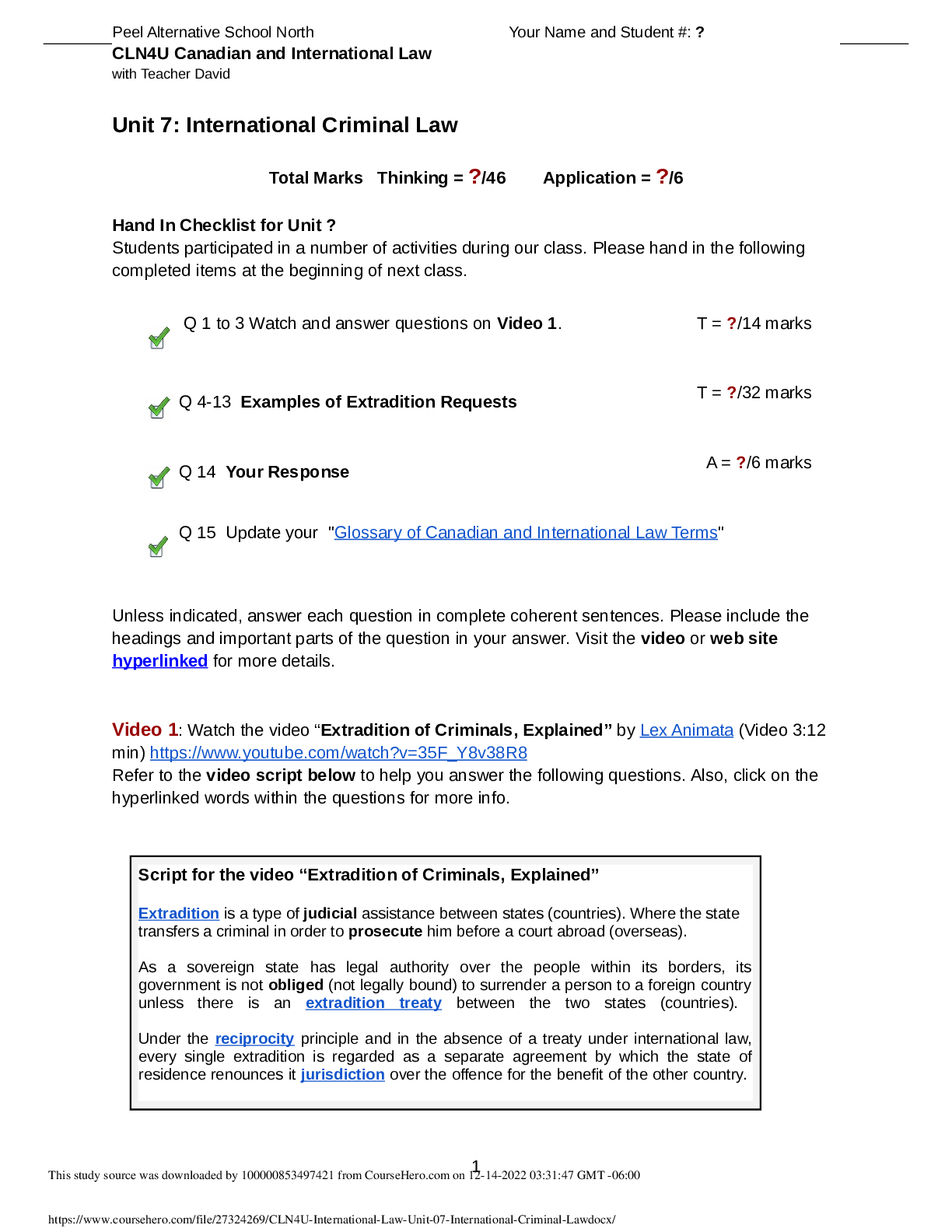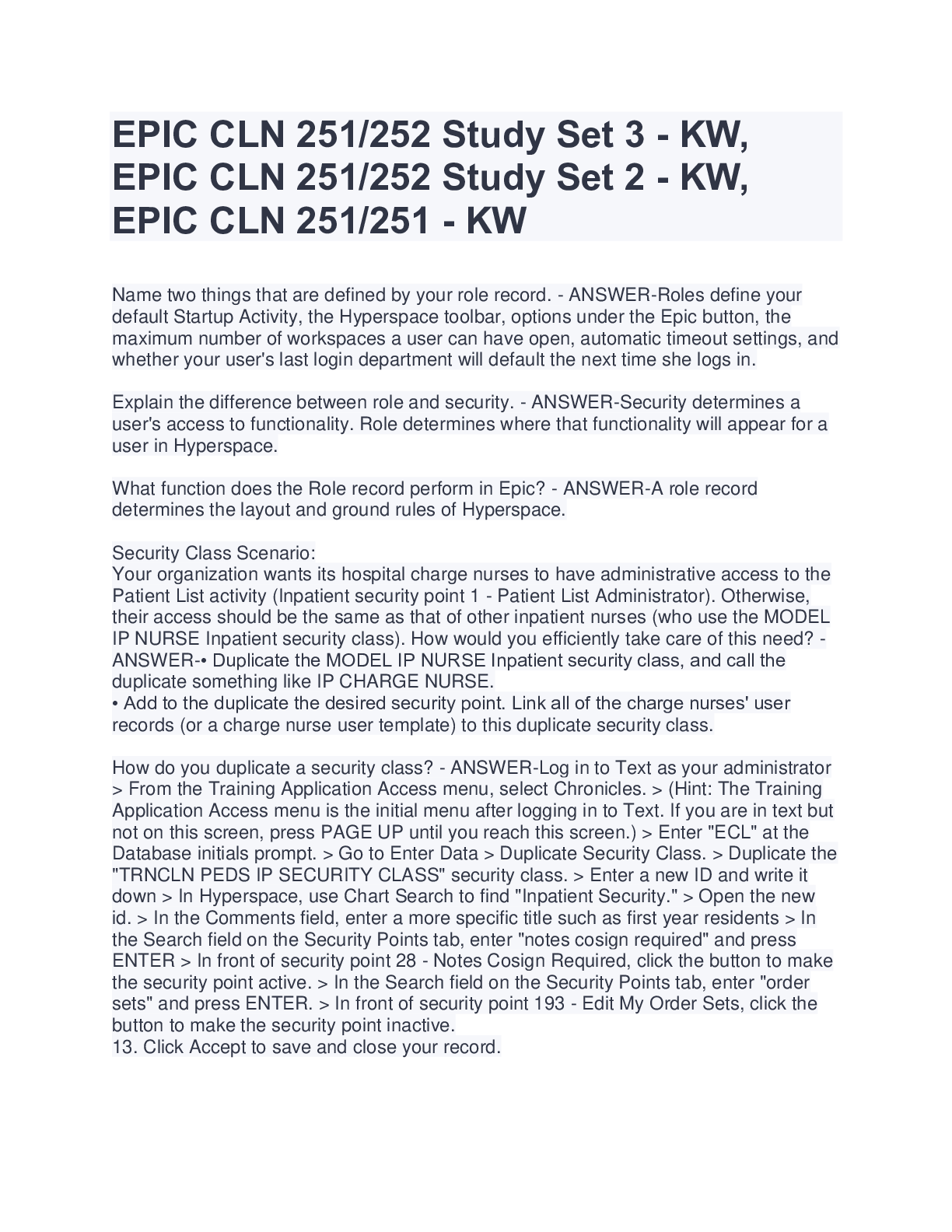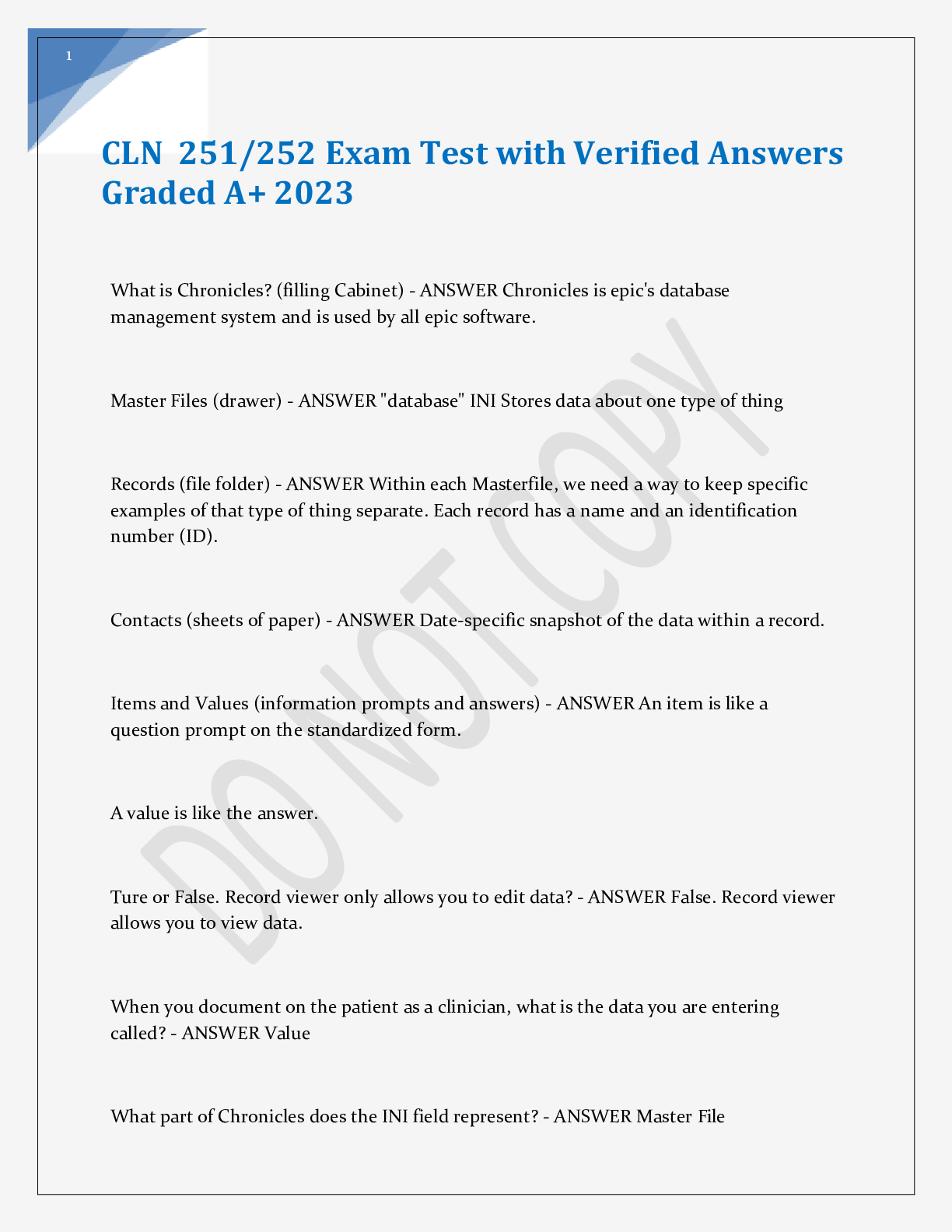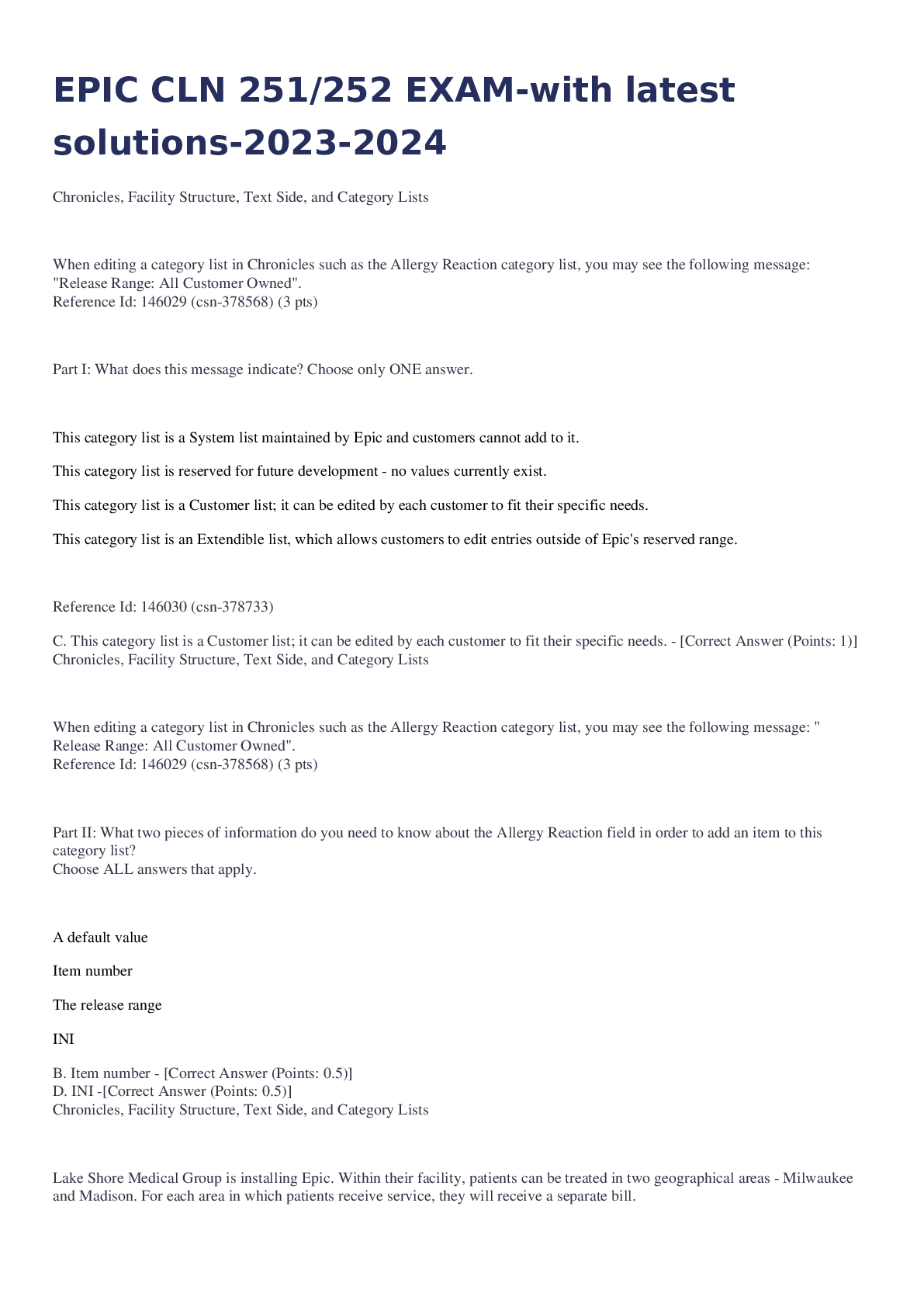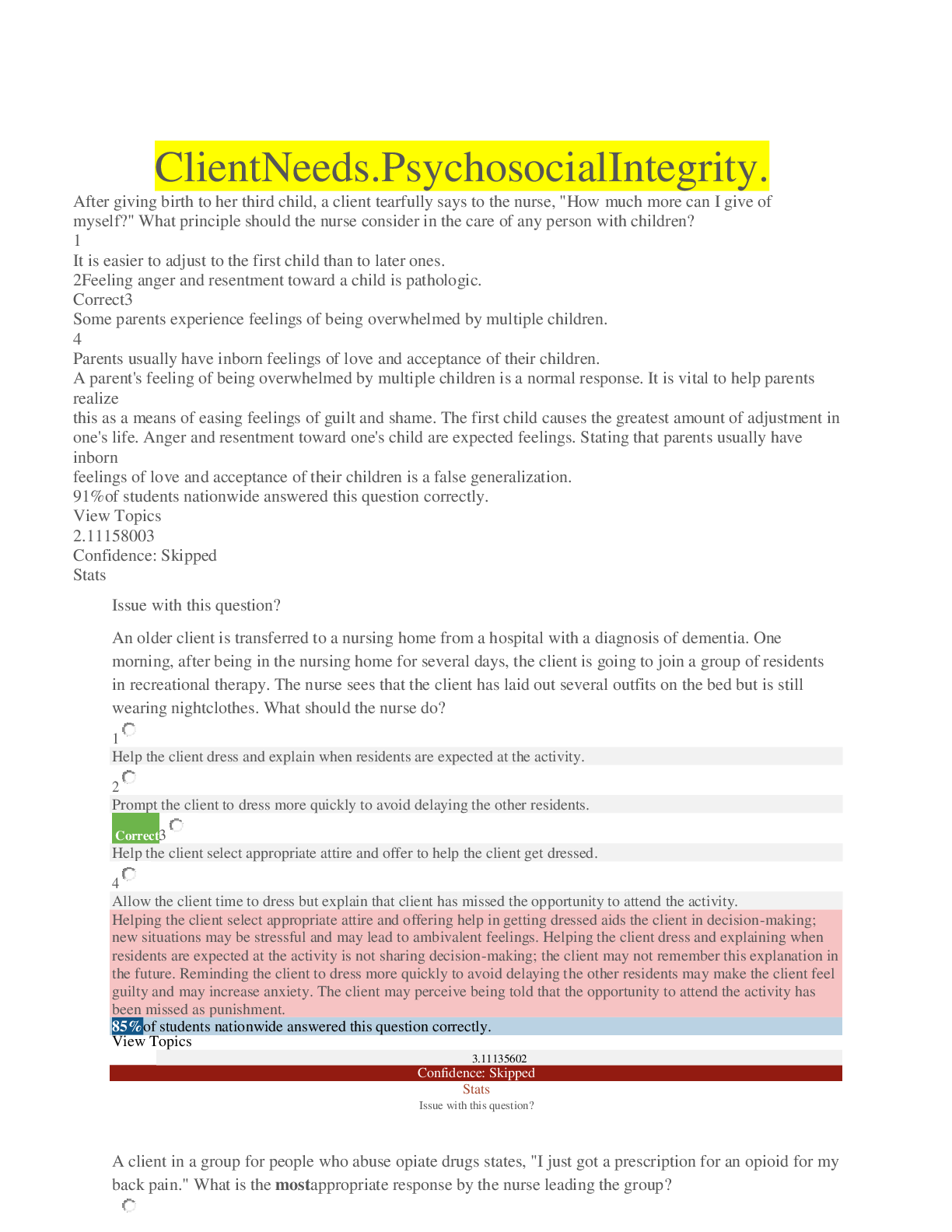Health Care > EXAM > Med-Surg II Exam 4: Metabolic & Endocrine/Adrenal Gland Disorders (All)
Med-Surg II Exam 4: Metabolic & Endocrine/Adrenal Gland Disorders
Document Content and Description Below
Adrenal Gland Hormones - ANSWER Sugar (Glucocorticoids) Salt (Mineralcorticoids) Sex (Androgens) Adrenal Gland Insufficiency - ANSWER may result from: -inadequate secretion of ACTH -dysfunct... ion of hypothalamic-pituitary control -direct dysfunction of adrenal gland tissue -may develop gradually or occur quickly with stress -acute adrenocortical insufficiency → adrenal crisis -life-threatening manifestations appear without warning -insufficiency of adrenocortical steroids = problems because of loss of aldosterone and cortisol actions -low cortisol secretion -decreased gluconeogenesis -less glucose made from proteins depletion of liver and muscle glycogen -hypoglycemia -due to depletion listed previously -GFR and gastric acid production decrease -reduced urea nitrogen excretion anorexia and weight loss -insufficiency of adrenocortical steroids = problems because of loss of aldosterone and cortisol actions -low aldosterone secretion -potassium, sodium, and water imbalances -hyperkalemia due to decreased potassium excretion -acidosis due to reabsorption of hydrogen ions -sodium and water excretion increased -hyponatremia and hypovolemia Causes of Addison's Disease - ANSWER primary causes: -idiopathic (autoimmune) disease - most common cause -TB -Metastatic cancer -Fungal lesions -AIDS -hemorrhage -gram-negative sepsis (Waterhouse-Friderichsen syndrome) -adrenalectomy -abdominal radiation therapy Secondary causes: -pituitary tumors -postpartum pituitary necrosis (Sheehan's Syndrome) -hypophysectomy -high-dose pituitary radiation -high-dose whole-brain radiation -Adrenal Insufficiency -common cause of secondary adrenal insufficiency -sudden cessation of long-term glucocorticoid therapy Addison's Disease Presentation - ANSWER -Bronze pigmentation of skin -Δ's in body hair distribution -GI disturbances -Weight loss -Weakness -Hypoglycemia -Postural Hypotension -Confusion -Apathy -Psycosis Adrenal Crisis - ANSWER -Profound fatigue -Dehydration -Vascular collapse (↓ BP) -Renal shut down -↓ serum Na -↓ serum K+ Addison's Disease Tx - ANSWER Life-long corticosteroid replacement therapy Addisonian Crisis - ANSWER Acute adrenal insufficiency -life-threatening event -need for cortisol and aldosterone is greater than available supply -triggered by a to stressful event -same problems as chronic adrenal insufficiency (Addison's disease) but more severe. - without rapid intervention: -sodium levels fall and potassium levels rise rapidly -severe hypotension from blood volume depletion (loss of aldosterone) Acute adrenal insufficiency Tx - ANSWER Hormone Replacement -rapid infusion of NS or D%NS -IV bolus of hydrocortisone sodium succinate (Solu-Cortef) or dexamethasone (Decadron) -Solu-Cortef IV drip for 8 hrs -Hydrocortisone 50 mg IM q 12 hours -H2 histamine blocker IV for ulcer prevention Hyperkalemia Management -insulin/dextrose/bicarbonate -calcium -Kayexalate -loop or thiazide diuretics -I/O with potassium restriction -cardiac monitoring Hypoglycemia Management -IV glucose -Glucagon -Accuchecks hourly Other: -psychosocial support -promote fluid balance -prevent hypoglycemia -daily weights -CV monitoring Replacement Therapy - ANSWER *CAUTION: Salt restriction or diuretic therapy may lead to adrenal crisis in these patients -most common oral cortisol replacement -prednisone -mineralocorticoid may be needed to maintain sodium and potassium balance -fludrocortisone (Florinef) -may need dosage adjustment in hot weather Adrenal Gland Hyperfunction - ANSWER -Oversecretion of one or all adrenal hormones -Adrenal Cortex -Hypercortisolism -Cushing's disease or Cushing's syndrome -Hyperaldosteronism -Excessive mineralocorticoid production -Adrenal Medulla -Caused by tumor -pheochromocytoma -Excessive secretion of catecholamines Cushing's disease - ANSWER -exaggerated secretion of cortisol from adrenal cortex -may be caused by a problem in adrenal cortex -may be caused by a problem in anterior pituitary or hypothalamus -most common cause of Cushing's disease is pituitary adenoma results in bilateral adrenal hyperplasia -may be caused by glucocorticoid therapy -excess glucocorticoids affect metabolism and all body systems Hypercorticolism - ANSWER Cushing's disease -increase in total body fat -slow turnover of plasma fatty acids -redistribution of fat -truncal obesity -"buffalo hump" -"moon face" -Increase breakdown of tissue protein -decreased muscle mass/strength, thin skin, fragile capillaries -increase in urine nitrogen excretion -loss of bone density -lymphocytes killed/organs containing lymphocytes shrink -inflammatory and immune response reduced Cushing's Disease Causes - ANSWER Endogenous Secretion (Cushing's Disease) -bilateral adrenal hyperplasia - most common cause -pituitary adenoma -malignancies -adrenal adenomas or carcinomas Exogenous administration (Cushing's Syndrome) -therapeutic use of ACTH or glucocorticoids -used most commonly in: -asthma -autoimmune disorders -organ transplantation -cancer chemotherapy -allergic response -chronic illness Cushing's Disease Presentation - ANSWER -Personality Δ's -Red face -↑ susceptibility to infection -Gynecomastia in males -Amenorrhea, Hirsutism in females -Fat deposition on abdomen and back of neck ("buffalo hump") -Thin skin -Hyperglycemia -Purple Striae on abdomen -Fluid retention -"moon face" -GI distress - ↑ acid -Bruises and petechiae -Osteoporosis (↑ risk of fractures) Cushing's Disease Dx - ANSWER Laboratory Testing -Blood, Saliva, and Urine -findings may include: -increased blood glucose and sodium levels -decreased lymphocyte counts and serum calcium and potassium levels -Dexamethasone suppression testing -given set amounts of decadron -can be done overnight or over 3 days -24-hour urine collection following drug administration -Cortisol Levels -saliva is accurate because cortisol-binding proteins are NOT present in saliva -must be saliva, not spit!!! -Plasma ACTH levels -pituitary Cushing's disease elevated ACTH levels -Cushing's from chronic steroid use very low ACTH levels Non-surgical Tx of Cushing's Disease - ANSWER -patient safety teaching -drug therapy -nutrition therapy -monitoring -every 2 hours!!! Surgical Tx of Cushing's Disease - ANSWER -hypophysectomy -adrenalectomy -unilateral or bilateral -replacement therapy needed -lifetime for bilateral -up to two years for unilateral Hyperaldosteronism - ANSWER -increased secretion of aldosterone with mineralocorticoid excess Primary Etiology -Conn's Syndrome -excessive secretion of aldosterone from one or both adrenal glands -usually caused by adrenal adenoma increased secretion of aldosterone with mineralocorticoid excess Secondary Etiology -high levels of angiotensin II stimulated by high plasma renin levels -high renin level causes → kidney hypoxemia and excessive use of thiazide diuretics -Diagnosed by lab studies, x-rays, CTs or MRIs -Common Tx is surgery -cannot be done until potassium levels are normal Complications of Hyperaldosterone - ANSWER -HTN -Hypernatremia -Hypokalemia -Metabolic acidosis -Usually no peripheral edema Pheochromocytoma - ANSWER -Catecholamine-producing tumor in the adrenal medulla -usually occurs as a single lesion -Usually benign -10% are malignant -Tumors produce, store, and release epinephrine & norepinephrine -Rare -occurs slightly more often in women -Occurs at any age but most common between 40-60 years of age -Unknown cause -may have hereditary connection Pheochromocytoma Assessment - ANSWER -HTN is hallmark of disease -intermittent episodes of HTN -may have hypertensive crisis -DO NOT PALPATE ABDOMEN OF PT WITH PEHOCHROMOCYTOMA!!! Pheochromocytoma Interventions - ANSWER -Diagnosis with 24-hour urine collection for: -vanillylmandelic acid (VMA) -product of catecholamine metabolism -metanephrine -catecholamines -Surgery is main treatment -monitor BP closely post-op -HTN most serious complication post-op -Medical management if not a surgical candidate -alpha-adrenergic and beta-adrenergic blocking agents -Pheochromocytomas does not respond well to chemo or radiation [Show More]
Last updated: 1 year ago
Preview 1 out of 9 pages
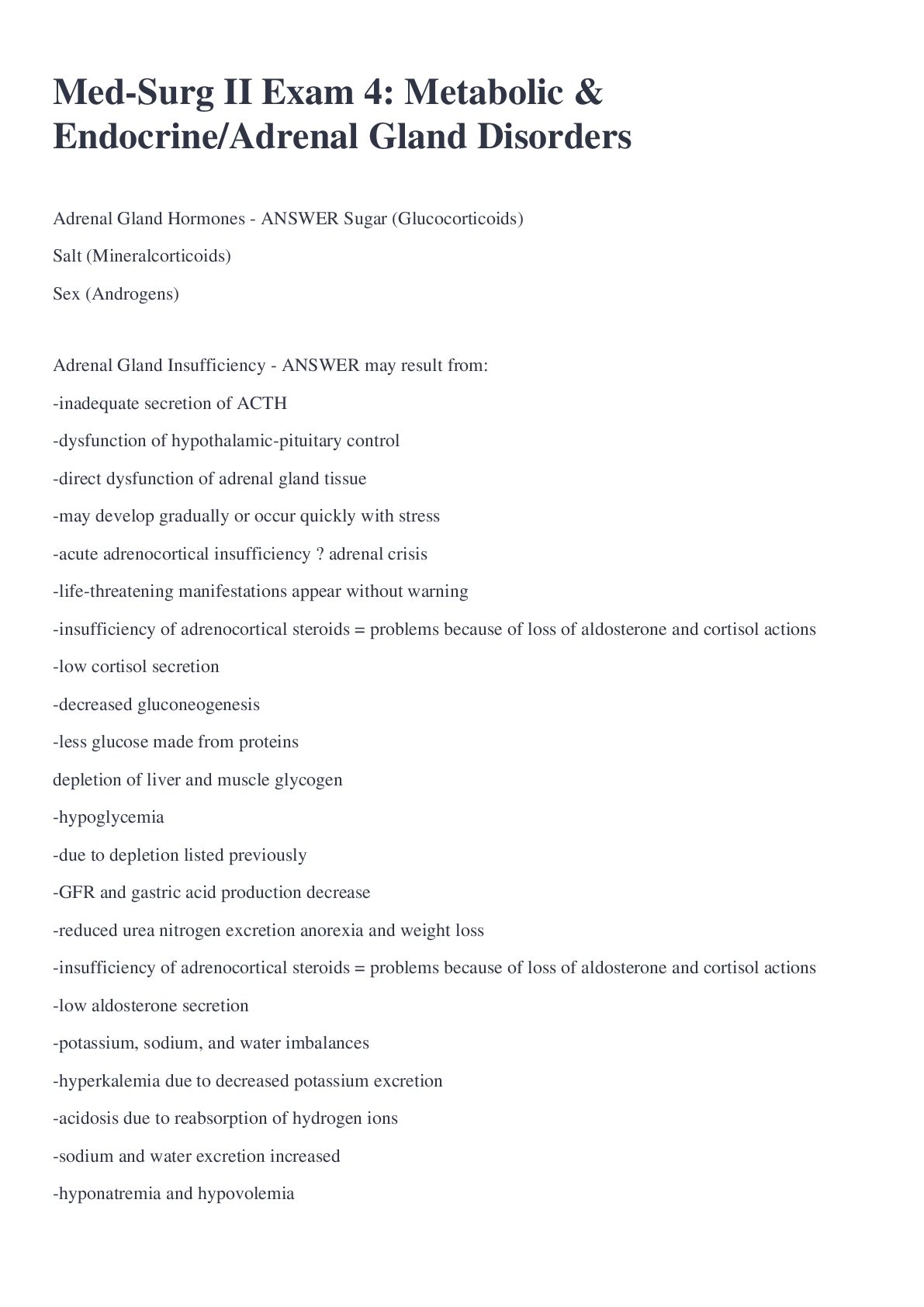
Reviews( 0 )
Document information
Connected school, study & course
About the document
Uploaded On
Dec 04, 2022
Number of pages
9
Written in
Additional information
This document has been written for:
Uploaded
Dec 04, 2022
Downloads
0
Views
75

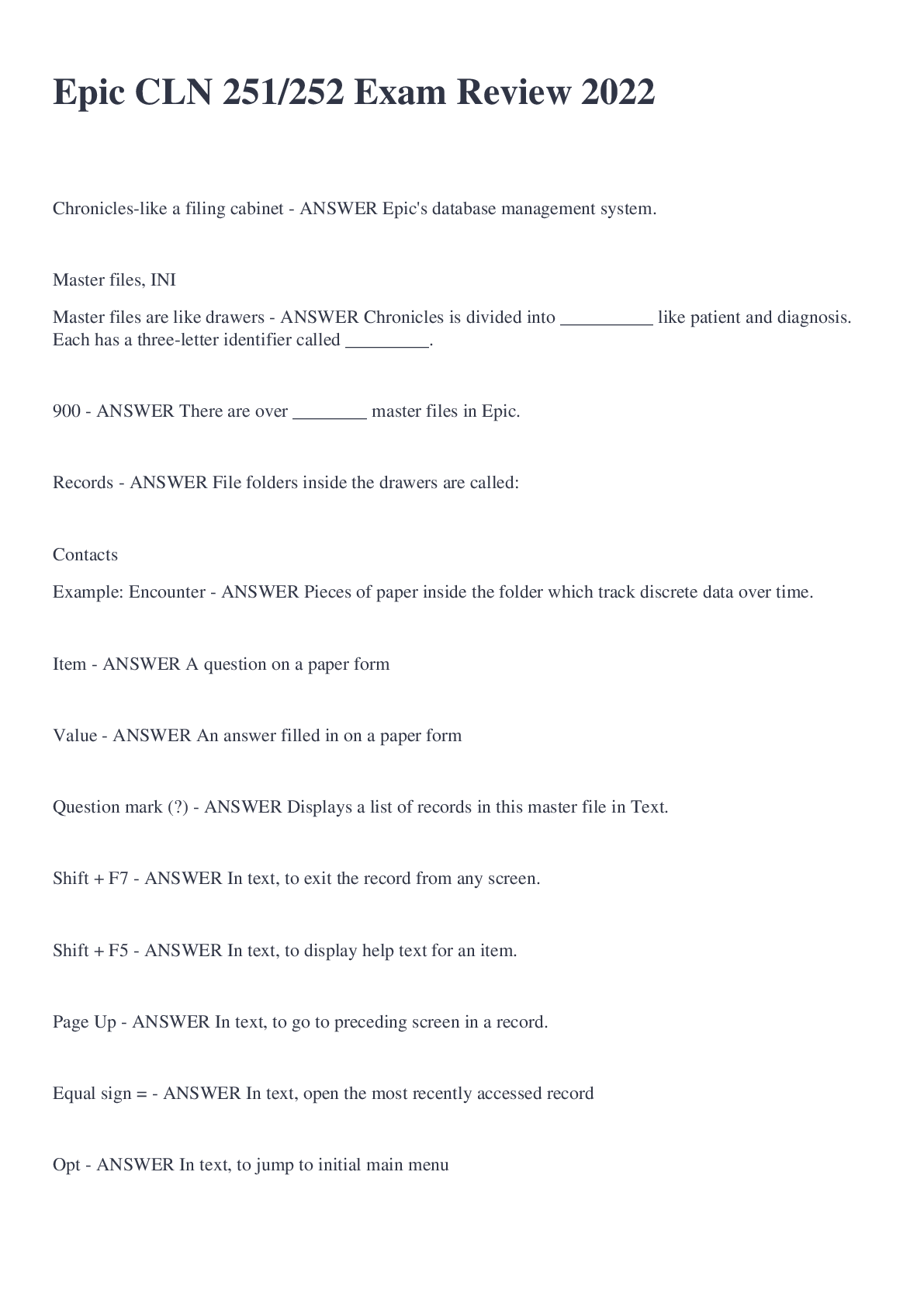

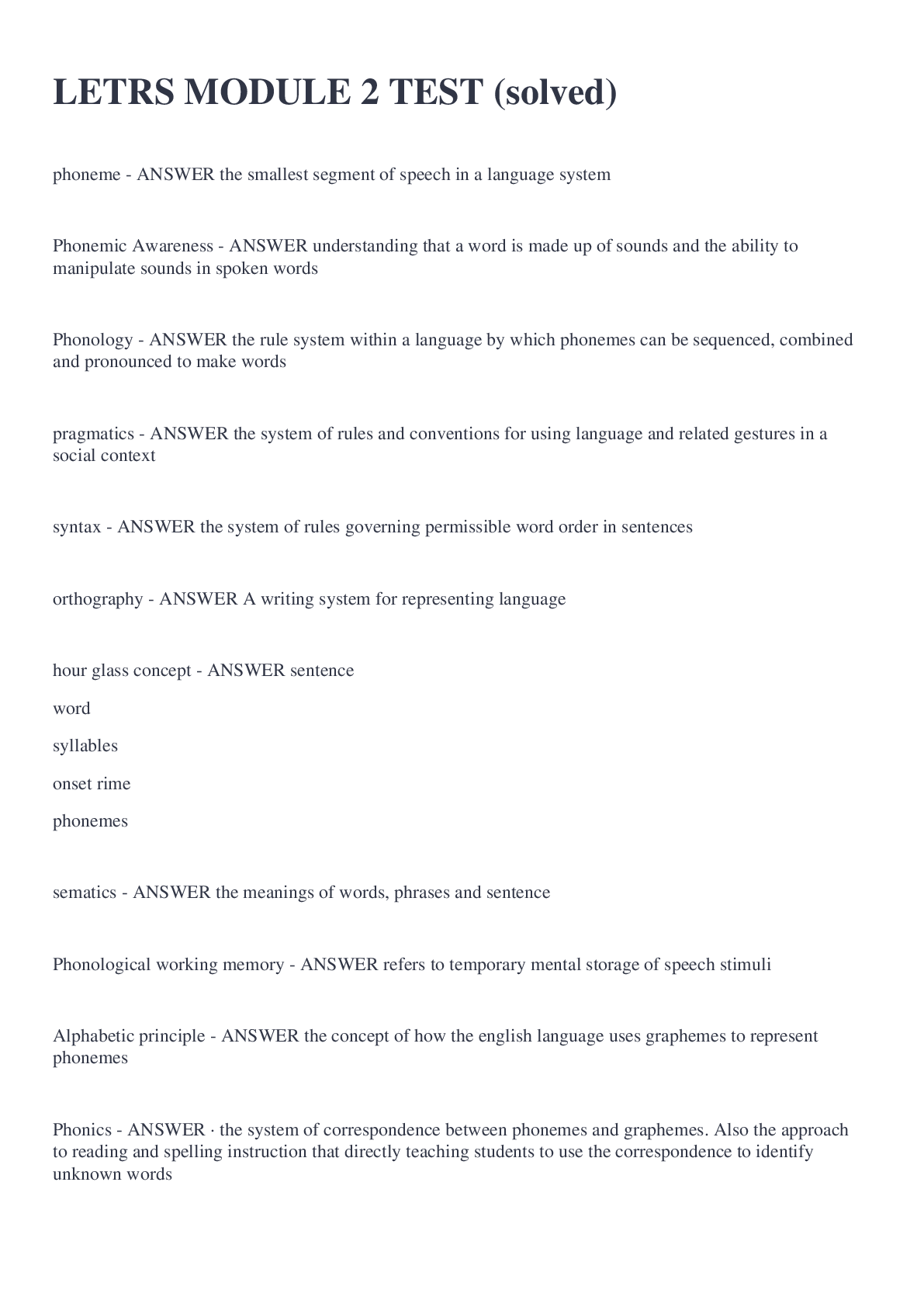


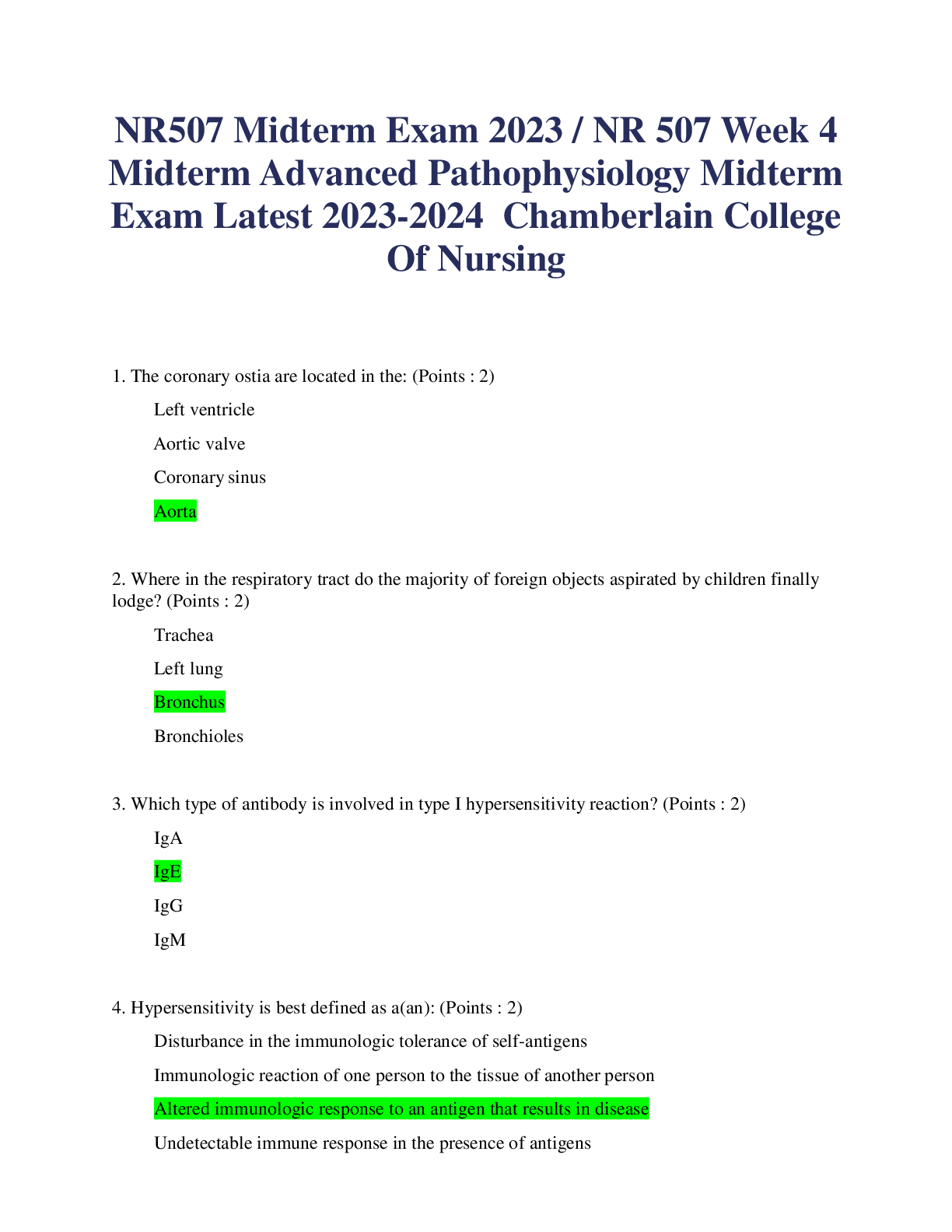

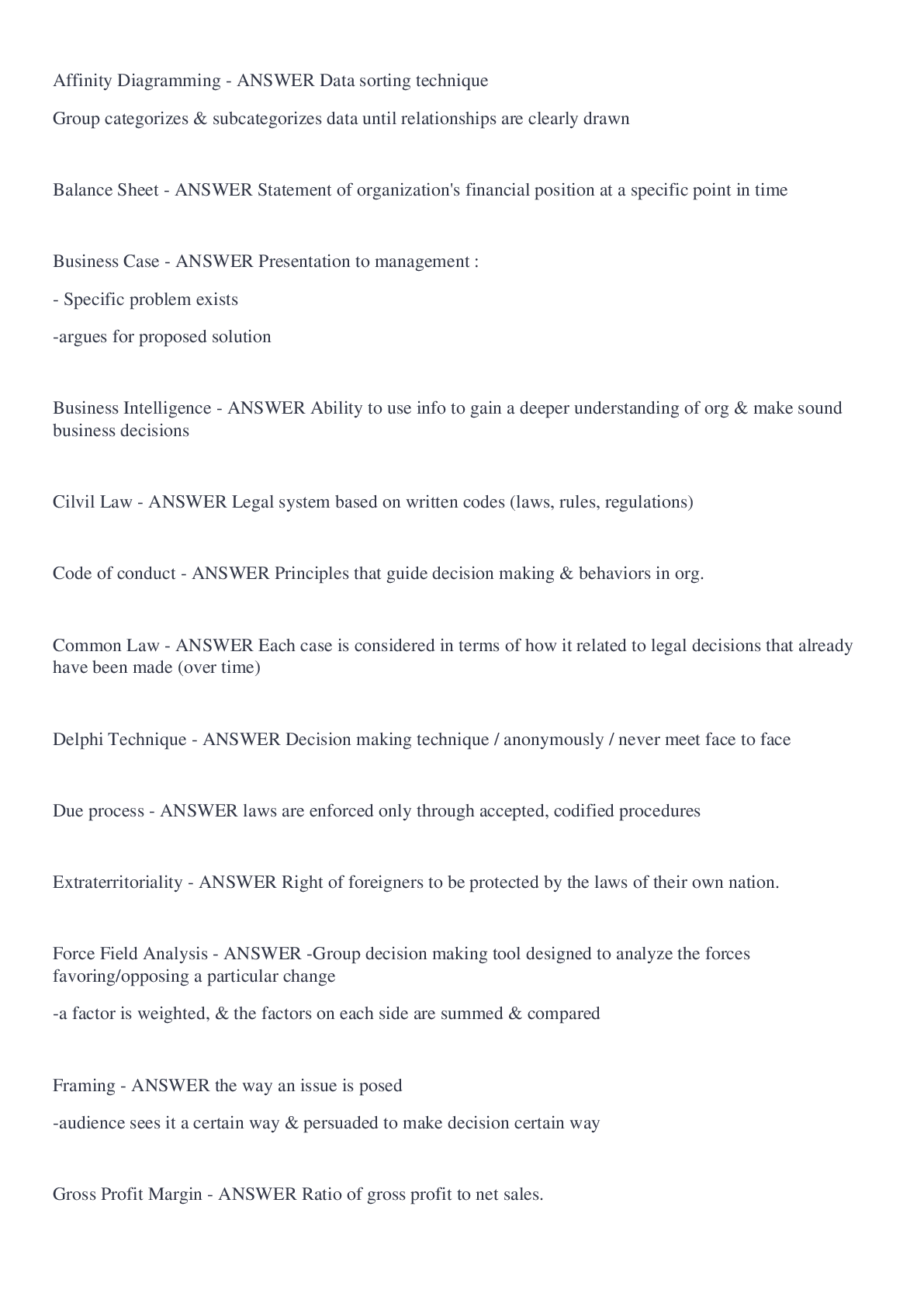

.png)

